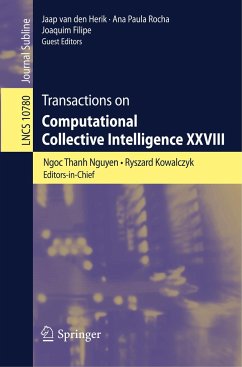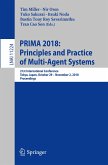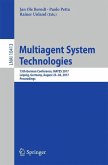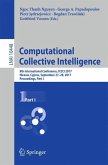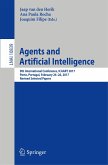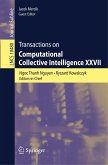These transactions publish research in computer-based methods of computational collective intelligence (CCI) and their applications in a wide range of fields such as the semantic Web, social networks, and multi-agent systems. TCCI strives to cover new methodological, theoretical and practical aspects of CCI understood as the form of intelligence that emerges from the collaboration and competition of many individuals (artificial and/or natural). The application of multiple computational intelligence technologies, such as fuzzy systems, evolutionary computation, neural systems, consensus theory, etc., aims to support human and other collective intelligence and to create new forms of CCI in natural and/or artificial systems. This twenty-eight issue is a special issue with 11 selected papers from the International Conference on Agents and Artificial Intelligence, ICAART 2016 and 2017 editions.
Bitte wählen Sie Ihr Anliegen aus.
Rechnungen
Retourenschein anfordern
Bestellstatus
Storno

